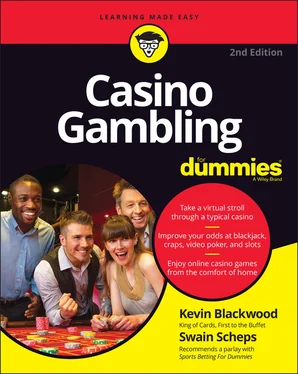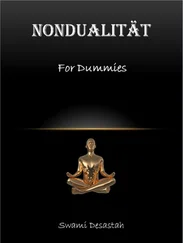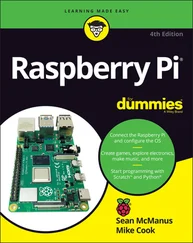308 314
309 315
310 316
311 317
312 318
313 319
314 320
315 321
316 322
317 323
318 324
319 325
320 326
321 327
322 328
323 329
324 330
325 331
326 332
327 333
328 334
329 335
330 336
331 337
332 338
333 339
334 340
335 341
336 342
337 343
338 344
339 345
340 346
341 347
342 348
343 349
344 350
345 351
346 352
347 353
348 354
349 355
350 356
351 357
352 358
353 359
354 360
355 361
356 362
357 363
358 364
359 365
360 366
361 367
362 368
363 369
364 370
365 371
366 372
367 373
368 374
369 375
370 376
371 377
372 379
373 380
374 381
375 382
376 383
377 384
378 385
379 386
380 387
381 388
382 389
383 390
384 391
385 392
386 393
387 394
388 395
389 396
390 397
391 399
392 400
393 401
394 402
395 403
At the moment Julius Caesar and his army crossed the little stream known as the Rubicon in Northern Italy, he became a capital criminal back in Rome. To preserve the Republic, no General was allowed to bring troops into the capital, but Caesar suspected he would be welcomed by the Senate and people rather than executed.
You might think the words he uttered at that pivotal moment would be exhortations to the gods or pleas to the Senate about his patriotism and intentions. Instead, he simply said, “ Alea acta est ” — the die is cast. Caesar had pushed all his chips on the 7 and sent the dice flying in hopes of a lucky roll. His fate, and that of history itself, hinged on what number turned up.
It shouldn’t surprise us that Caesar alluded to a dice game. Gambling was already an ancient form of entertainment. In fact, we’ve been gambling since the beginning. Nearly every major ancient civilization — from the Chinese to the Babylonians, from the Greeks to the Incas — played games of chance. You might say it’s written into our DNA as humans.
And there’s more to it than entertainment. Gambling has advanced philosophy, economics, and of course, mathematics. About the time Vesalius revealed the workings of the human body and Copernicus demoted the Earth from its status as center of the universe, their lesser-known high school classmate Girolamo Cardano released a seminal tome on gambling that laid down principles on statistics and probability. This work — as much as any other in the Renaissance — helped launch the world toward modernity. (And no, these guys weren’t actually high school classmates.)
Gambling has always been a democratic pastime. It brings people together, just as it does to this day. Dice and cards don’t care about your class, your status, or your wealth. In fact, gambling helped launch democracy when 13 restless colonies helped fund their revolution and their new nation through government-run lotteries.
So, when you step into a casino, you’re doing something essentially human. You’re joining a long line of people that stretches around the world and back into the mists of time. They knew that putting some small piece of your livelihood in the hands of fate confirms we’re alive. They saw that the ups and downs of a game are like miniature rehearsals for life itself. When you try your luck, you open a peephole into the machinery of the universe, hoping to get a sign of what it has in store for us. You’ve bought this book and joined a long tradition. You’re already a gambler. Let’s see what happens next. Alea acta est.
Whether we’re talking about casinos, horse races, sports bets, lottery scratch-off tickets, or even church bingo night, gambling is a legitimate and accepted form of entertainment. But, as popular as it is the world over, it’s not a path to riches, and it’s not without its risks.
Here’s why: The folks who run the casinos are professionals who are astute business people with a successful formula for profit. They have the technology and resources to conduct research and development on how to take advantage of human desire and weakness. They know how to turn raw data into a fine-tuned operational strategy, and most of all, they know how to separate you from your money in order to grow their businesses and pay their shareholders.
And the average casino patrons? They are not likely to be professionals. These are the people thinking they can win their way to retirement just because they clean up in the neighborhood card night. They might be the ones on the cruise ship, communing with the universe about the optimal time of day to play the slots. Or they could be that bright young couple who went to Vegas just for the entertainment, and now when you talk to them, you see little roulette wheels spinning around where their pupils used to be.
The theme of this book is simple: A poorly prepared player — someone who doesn’t understand the games or the odds behind them — has virtually no chance to beat the house at its own game. Remember this fact: The Las Vegas Strip is an impressive stretch of elaborate resorts built one brick at a time from the losses of clueless sheep. The same story holds true for the casinos in Atlantic City, Kansas City, Chicago, and Tupelo, cruise ships, Native American reservations, riverboats, and every gaming establishment in between. Inexperience, intuition, and lucky guesses are poor guides in casino gambling.
But you don’t have to follow the flock to slaughter. This book arms you with the knowledge to turn casino odds in your favor. So, settle in, educate yourself, and get ready for a positive — even profitable — gambling experience.
If you’re heading to a destination with a casino sometime soon, then this is the book for you. From blackjack to baccarat and from sports betting to slot strategies, prepare to receive the essential information you need to succeed and broaden your casino experience.
Casino games range in complexity and risk, so it’s critical that you choose the ones that match your brainpower commitment. For example, you should know that blackjack and poker require skill, while the average golden retriever is fully qualified to win at slots and keno. Feel free to gamble your dollars any way you want inside the casino. Bet big, bet small, play one game, or play them all. But the mission of this book is the same no matter what: steering you toward the best games and away from gimmicks and bad bets.
In addition to the nuts, bolts, and winning strategies of each casino game, there are important universal concepts, such as probability, money management, and the role of luck in gambling. Too many people neglect these dynamics. By mastering them, you improve your chances of winning.
Look. Casinos don’t have to be seen as evil empires of sin and vice. American casinos are well regulated and run fair games. But fair doesn’t mean you have a 50-50 chance to win. And it doesn’t mean they bend over backward to keep you away from dumb bets. Such information runs contrary to the primary goal of their business: to part you from your money. Reading Casino Gambling For Dummies is your act of defiance and your way of striking back at the empire. And as the ultimate poke in the eye to the evil empires, you might just come home a winner.
Each game of chance covered in this book comes with its own vocabulary — gambling jargon — that helps you become a successful player. For example, to play craps correctly, you must know what a field bet is and why you should avoid it. To make money at blackjack, you want to understand the terms double down and insurance .
Читать дальше












